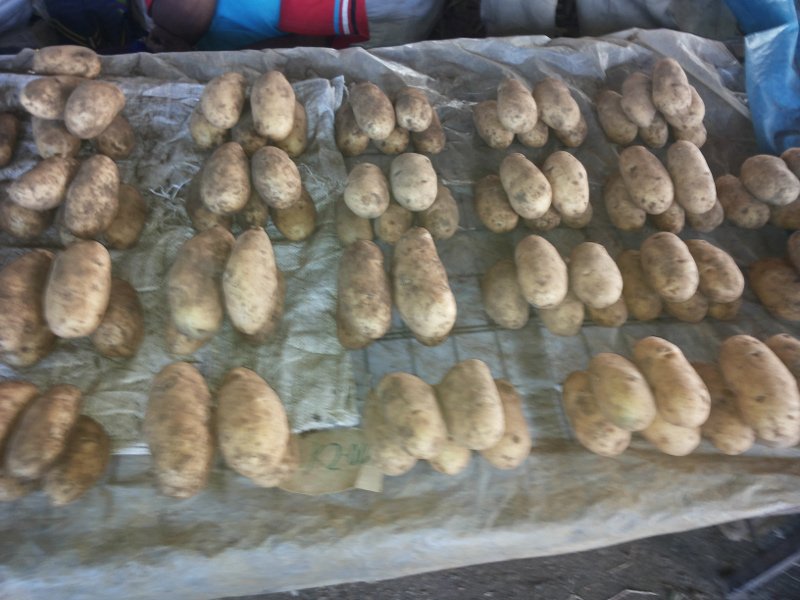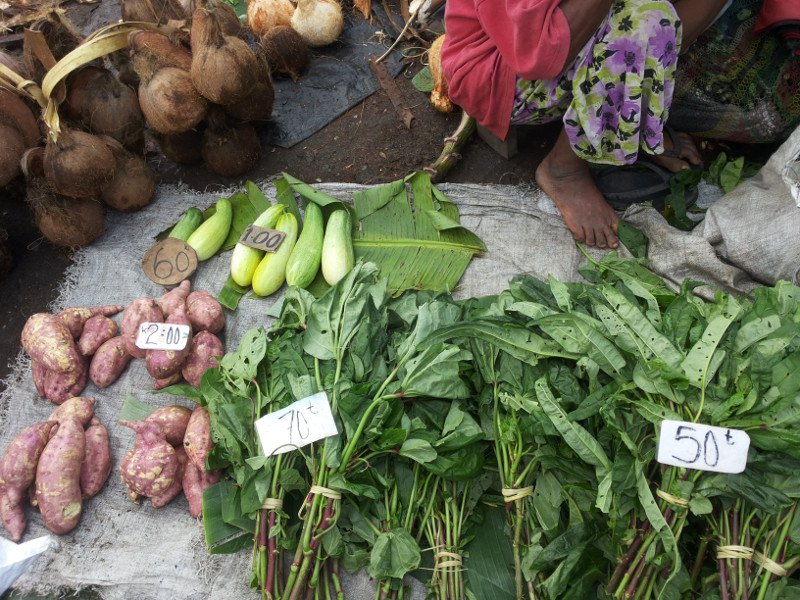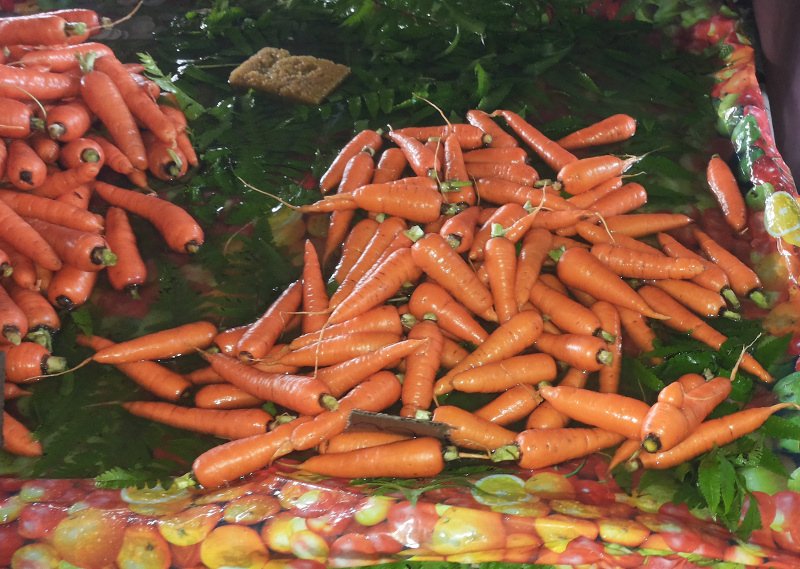
PLB Resistant clone
When we talk to farmers growing food in PNG, many will tell us they can grow produce, but "maket we?" or translated, "where is the market?". This is a genuine concern, compounded particularly by remoteness, competition from imports, transport difficulties, poor infrastructure, and a rapidly changing supply and demand situation for many higher value food products. Farmers, technical advisers, and policy makers can make a difference with analysis and a positive approach.
So... what can farmers and other stakeholders do to improve their situation? .... that is the challenge which can be addressed with some innovative thinking and action ...
Staple foods including sweet potato, taro, banana, cassava, yam, sago, rice, and wheat based foods make up the largest market component of the food sector. Currently a significant proportion of these are imported in the form of rice and wheat based products. While the subsistence consumption and informal marketing of the traditional staples is substantial, there is scope for major inroads into the market share of the imported alternatives.
How significant is the market share taken by imports? The stated 2013 production of 200,000 tonnes of rice, almost all imported, by one of the major PNG importer / processors would have a retail value of around K600-700 million. This is significant by any standard. When we add in the value from other rice importers and wheat and other grain products for both human and livestock feed, it certainly shows a picture of "what could be" for PNG farmers. There is a whole scenario here which can be quite easily modelled to show the benefits and flow-on effects.
There is no need to ban imports but rather, look at why traditional foods have such a small market share ... plan... and set some targets .. the important fact is that there is a huge market for PNG farmers.... food for thought?



